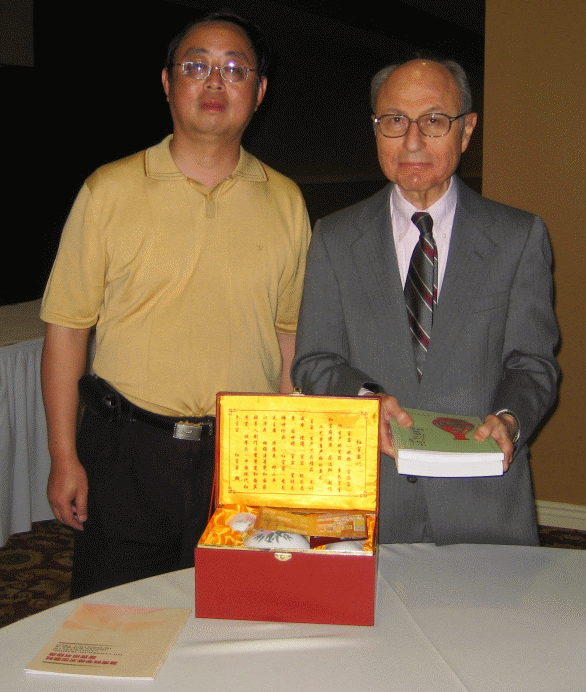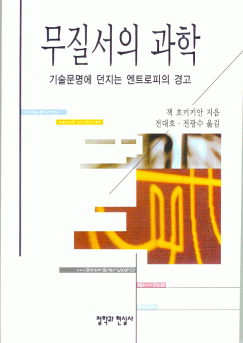|
Chinese Edition Hunan Science and Technology Press has published bestselling books by astrophysicist Stephen Hawking, biologist Edward O. Wilson and Pulitzer Prize winner Thomas L. Friedman. Recently, they published Nobel Laureate Al Gore's bestseller An Inconvenient Truth. Interestingly, the Washington Post reported that President Hu Jintao of China, a hydraulic engineer by education, "has declared that the country must pursue 'scientific development,' taking environmental and social concerns into account as the economy grows." [1] In thermodynamic terms, President Hu's declaration says we cannot afford to neglect the environmental and social entropies—disorders—that our technological and economic processes generate. This is a principal message in The Science of Disorder. Environmental entropy, a.k.a. pollution, has reached a noticeably high level in China. The New York Times reports that Prime Minister Wen Jiabao, in his equivalent of a State of the Union address last year (2007), "made 48 references to 'environment,' 'pollution,' or 'environmental protection.' " [2] In today's high-entropic environment, whereupon our world is changing rapidly in many directions all at once, creating all kinds of socioeconomic problems for governments, societies and individuals alike, President Hu is promoting the old philosophical concept of "Harmonious Society," which treats harmony as a fundamental virtue. [1, 3, 4, 5, 6] As it turns out, the important idea of living in harmony is mentioned twice in The Science of Disorder, in the first page of the Introduction and the last page of the book. In the Introduction: "Once we grasp the essence of the Laws of Thermodynamics, we understand why our problems, from economic to environmental to social, are becoming increasingly intricate worldwide. Knowledge of these laws will help us comprehend how Nature works, and thus let us live in harmony with Nature and each other." And in the last page: "We need a new generation of economists who would propose socioeconomic policies that are in harmony with the Laws of Nature." [1] Edward Cody, "Eight-Step Program For What Ails China: President Reacts to Rising Greed, Cynicism," Washington Post, March 23, 2006, p. A16. [2] Joseph Kahn and Jim Yardley, Choking on Growth; Part I of a series of articles and multimedia examining the human toll, global impact and political challenge of China's epic pollution crisis: "As China Roars, Pollution Reaches Deadly Extremes," New York Times, August 26, 2007. See also Keith Bradsher, Choking on Growth Part VII: "Trucks Power China's Economy, at a Suffocating Cost," New York Times, December 8, 2007. [3] Maureen Fan, "China's Party Leadership Declares New Priority: 'Harmonious Society'; Doctrine Proposed By President Hu Formally Endorsed," Washington Post, October 12, 2006, p. A18. [4] Joseph Kahn, "China Backs Property Law, Buoying Middle Class," New York Times, March 16, 2007. [5] Ching-Ching Ni, "China turns to Confucius, with a modern twist," Los Angeles Times, May 7, 2007. [6] See also Evan Osnos, "In China, an unsettling gap grows," Chicago Tribune, July 15, 2007. A Memorable Meeting: Recently, Jack Hokikian had the honor and pleasure of meeting in Los Angeles with Mr. Liu Didi, Vice President of Hunan Science and Technology Press and the editor of the Chinese edition of The Science of Disorder.
______________________________________________________________ Korean Edition
|
||||||||||||||



